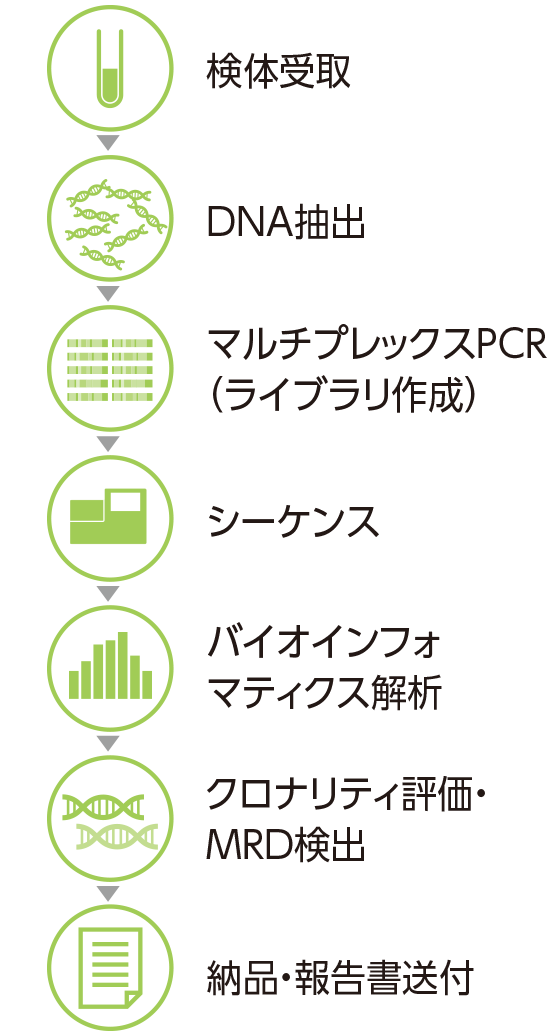Loading...
HOME >> サービスの流れ
解析フロー



検体条件
clonoSEQ
- IDサンプル : クローン多様性を決定し、クローン特異的BCR遺伝子配列を同定する検体
- MRDサンプル: IDサンプルで同定されたBCR遺伝子配列を追跡するフォローアップ検体
| IDサンプル | MRDサンプル | |
|---|---|---|
| gDNA 検体量 | 1μg以上 | 25μg以上 |
| gDNA 検体濃度 | 15ng/μL以上 | 300ng/μL以上 |
- gDNA以外の各種検体も受け入れ可能です。詳細は、パンフレット「サンプルおよび返却データ」をご覧いただくか、お問い合わせください。
- 記載の量にはQCテスト分も含みます。
- MRDテストにおいて、95%の信頼度で10
-6 の感度(100万個の正常細胞中に1個の腫瘍細胞)を得るには、20μg 以上のDNAが必要です。

納品物
- 解析報告書
- 解析データ(CSVファイル):
- Assay Report(検体と解析結果に関する重要な情報)
- Clonality Report (識別されたドミナントシーケンス情報)
- Tracking Report(追跡されたシーケンス情報)

